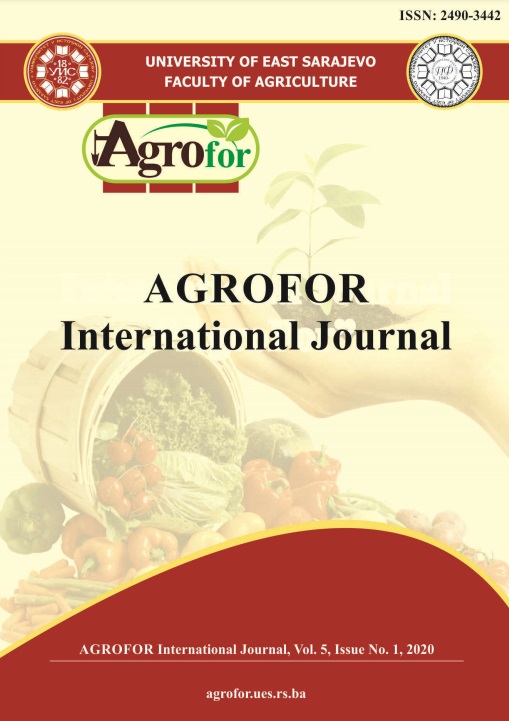RICE LOSSES CHARACTERISTICS IN VARIOUS HARVESTING METHODS
DOI:
https://doi.org/10.7251/AGRENG2001094AAbstract
Grain loss is inevitable during harvesting operations and attempts are made to identify and minimize that. In this study, field performance of five different harvesting methods were assessed which included three indirect harvesting methods of (i) manual cutting + threshing by a tractor driven thresher (T1), (ii) rice reaper + threshing by a tractor driven thresher (T2), (iii) rice reaper + threshing by universal combine harvester equipped with pickup type header (T3), and two direct harvesting methods of (iv) head-feed rice combine (T4), and (v) whole-crop rice combine (T5). The results revealed that the maximum and minimum effective field capacity related to whole-crop combine (0.361 ha h-1) and manual cutting (0.009 ha h-1), respectively. Quantitative losses (grain and panicle shattering) in harvesting and threshing obtained to be 2.58% and 2.33% in average on indirect harvesting (T1, T2 and T3) and direct harvesting (T4 and T5), respectively which were not significant statistically. The average qualitative losses (broken, husked and cracked grains) were 2.30% for indirect harvesting and 0.61% for direct harvesting that showed a decline of 63.3% compared to indirect harvesting. Total harvesting losses were 5.07% for T3 (maximum) and 2.74% for T4 (minimum). The harvesting method affected the percentage of broken rice after milling significantly. The average broken rice for T1, T2 and T3 was 23.72, 23.28 and 24.56% respectively which were significantly higher than T4 (21.05%) and T5 (20.87%). Also, in the view of loss reduction, applying rice combine harvesters had priority respect to
indirect harvesting methods.

